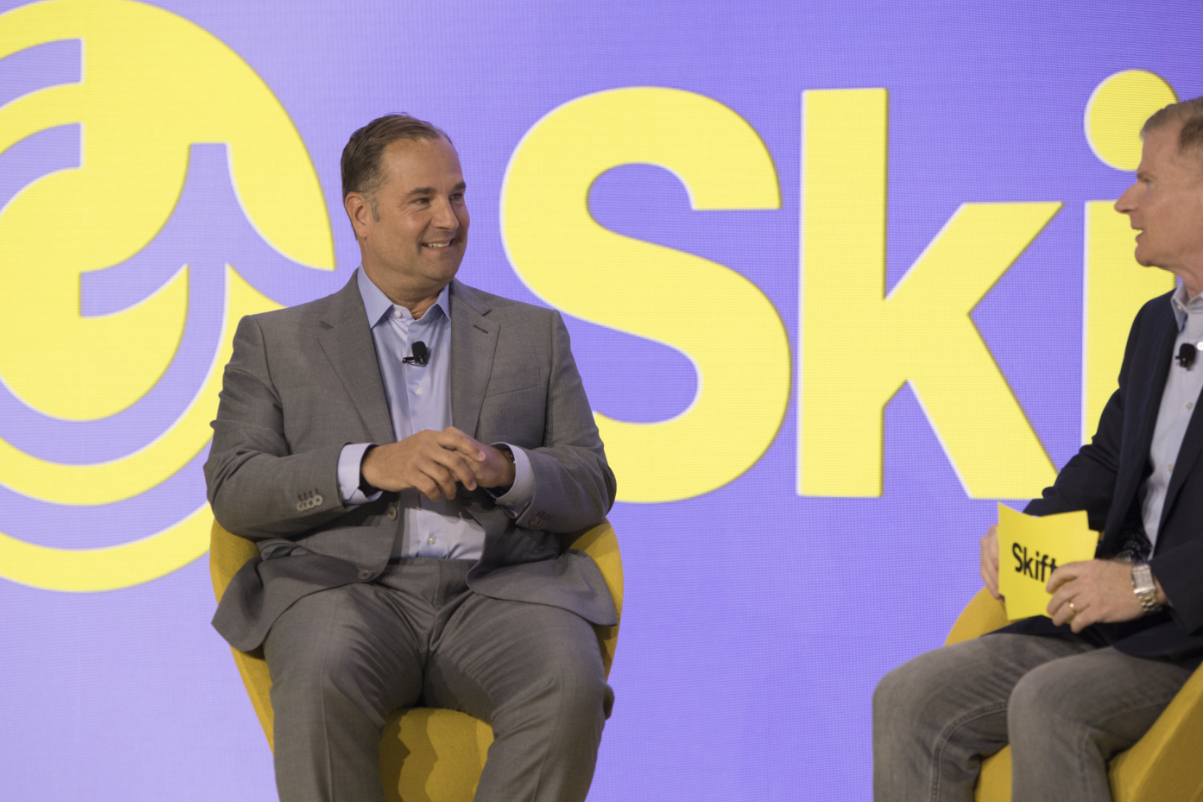Is There a Doctor On the Road? Travel Medicine Startup Raises $1.5 Million: Travel Startup Funding This Week

Skift Take

Travel Startup Funding This Week
Each week we round up travel startups that have recently received or announced funding. Please email Travel Tech Reporter Justin Dawes at jd@skift.com if you have funding news.Everyone has gotten sick on the road. Business travelers and vacationers both know the hassle of trying to find a doctor in a strange city, and many of us know about ending up in strange little doctor's offices that have risque pictures of celebrity patients on the wall (yes, this really happened) because our hotels had deals with said physicians, and about missing the chance to drive a venture capitalist's Tesla Roadster back when they were exotic (that, too) because that same fever forced us to cancel.
Now, a Miami-based startup called Runway says it can make it all better
The brainchild of 36-year old former pharmaceutical executive Josh Rome, Runway is setting out to be the Roman or Hims of travel medicine, doing for travel diarrhea, motion sickness and malaria what the earlier startups have done in erectile dysfunction and hair restoration. The idea: Let travelers arrange for online consultation about common problems before you go, and get pre-travel delivery of drugs so travelers can be prepared.
The company just raised $1.5 million in pre-seed venture capital, from investors led by Pareto Holdings, a business incubator led by Shutterstock founder Jon Oringer.
The market for travel health is a $12 billion industry yearly, Rome said, now served by brick and mortar chains, the biggest of which is Passport Health, and by small, local doctors' offices. By different estimates, he said, as many as half of visitors to developing nations develop some malady Runway is ready to treat. "Getting sick while traveling is more common than you might think," he said.
And he would know: The idea for Runway crystallized when Rowe himself fell ill in Mexico City during the Covid pandemic. He had to navigate language issues, and use drugs that weren't made in a facility approved by the U.S. Food and Drug Administration, he said. "I'll never be traveling without an antibiotic for travel diarrhea again," he said.
Runway's edge over businesses like Roman and Hims is that it will be able to market through tour operators and other partners, spending less than the cost of direct-to-consumer marketing that powers the familiar names, Rowe said. The breakthrough will come -- if it does -- when Rowe can convince big online travel agencies to work with him, he said.
"My north star for the next 12 months is building out our network," he said. "A goal is to get to the OTAs. If we can position our link next to the button to buy travel insurance, that would be good."
Checking Out the Attractions
Imagine being a hotel manager trying to solve three related problems, post-Covid (or during lingering Covid): Guests don't like a lengthy check-in and ride-hailing price spikes, the hotel needs to raise revenue by upselling guests on local attractions and room upgrades, and management doesn't have the staff to solve either of the first two.
Israeli startup Duve raised a $10 million Series A round from a group led by the billionaire Ofer family, through its venture investment vehicle XT Hi-Tech, for technology it says will help with all three.
The idea is a "guest management platform," techspeak for a white-label app that lets hotels streamline check-in by delivering contracts, arranging a fixed-price taxi in advance, and letting guests scan in passports in advance; upsell room upgrades and in-hotel services from restaurants to massages before arrival, and customize the advice concierges give about what to do nearby, tailoring recommendations for business travelers, romantic couples or families on vacation. The app also lets hotels solicit customer feedback before checkout, to fix problems before guests leave negative reviews online, he said.
"Our pillars are improving guest happiness and letting hotels get more done with less staff," said Adir Ron, chief marketing officer of Duve. "Hotels are not going to disappear [because of Covid-related staffing shortages]. They'll get more digital. But they still need to provide a personal service."
Research suggests that Duve is on to something. A report by Oracle Hospitality and Skift Research says 73 percent of customers are more likely to choose hotels that offer automated self-serve options like these. And marketing attractions has been a top cross-sell opportunity for hotels, airlines and travel agencies alike.
The company has been refining its approach in Israel and in Europe, Ron said. The venture money will pay for expansion in the U.S., where Duve has 100 hotel clients. One goal is to expand support operations to better serve western U.S. time zones, he said.
Short-term goals include doubling the company's staff to about 50 people, and getting major deals in at least three U.S. states, Ron said.
The target market is mostly boutique hotels, with the company thinking many chain hotels will get similar technology from their brands, Ron said.
Other deals announced recently include:
>>>Borrow a Boat, which calls itself the UK's leading yacht rental and boat charter marketplace, said it raised more than 1 million GBP in a crowdfunded capital round that opened on May 30.
>>>Smeetz, a Swiss startup whose software-based service lets attractions implement dynamic pricing plans based on artificial intelligence, said May 31 that it raised a $4 million Series A venture capital round, led by Zurich-based Privilege Ventures. The money will fund expansion to the U.S., the company said.
Skift Cheat Sheet
Seed capital is money used to start a business, often led by angel investors and friends or family.
Series A financing is typically drawn from venture capitalists. The round aims to help a startup’s founders make sure that their product is something that customers truly want to buy.
Series B financing is mainly about venture capitalist firms helping a company grow faster. These fundraising rounds can assist in recruiting skilled workers and developing cost-effective marketing.
Series C financing is ordinarily about helping a company expand, such as through acquisitions. In addition to VCs, hedge funds, investment banks, and private equity firms often participate.
Series D, E and, beyond These mainly mature businesses and the funding round may help a company prepare to go public or be acquired. A variety of types of private investors might participate.




